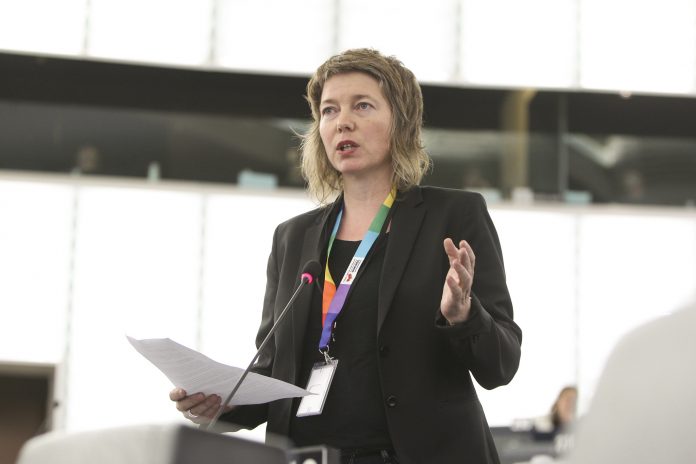The Civil Liberties and Women’s Rights committees call for online and offline gender-based violence to be included as a new area of crime listed under Article 83(1) TFEU.
In a draft legislative initiative report endorsed by the two committees on Wednesday with 53 votes in favour, 18 against, and 24 abstentions, MEPs demand targeted legislation and policies. These should aim to address the situation of victims of violence and discrimination based on their gender (not only against women and girls, but also against LGBTIQ+ persons), and on any other trait that may be used to target them, whether offline or online. In the draft report, MEPs denounce femicide as the most extreme form of gender-based violence against women and girls, and highlight that the denial of safe and legal abortion care is also a form of gender-based violence. They speak of the many adverse effects of gender-based violence on a personal, social, economic and democratic level, and reiterate that the situation has been exacerbated by the pandemic, including through the rise of inequalities. They also refer to the lack of trust in law enforcement authorities and the judicial system by survivors as an important contributor for the underreporting of incidents. The Commission should use the new area of crime, to be established under the third paragraph of Article 83(1) TFEU, as a legal basis for a holistic and victim-centred EU Directive preventing and combatting all forms of gender-based violence, both online and offline, they note. This new Directive should implement the standards of the Istanbul Convention (for example, in relation to defining rape based on the absence of consent) and other international standards, and should notably include:
prevention measures, including via gender-sensitive and intersectional responsive education programming directed at both girls and boys; support services, protection and reparation measures for victims; measures to fight all forms of gender-based violence, including violence against LGBTIQ+ persons on the grounds of gender, gender identity, gender expression and sex characteristics, and online gender-based violence and sexual exploitation and abuse; minimum standards for law enforcement; a victims-centred and intersectional approach; obligations for member states to ensure that custody and visitation rights of children are adequately considered where a case of gender-based violence is involved; measures ensuring that information is provided in all relevant languages; and measures to ensure cooperation among member states and the exchange of best practices, information and expertise.
Co-rapporteur Malin Björk (The Left, SE) said: “We need strong legislation, but we also need to invest in women’s shelters, in education and in healthcare, including sexual and reproductive rights such as abortion rights. The report recognises that LGBTI people are victims of gender-based violence as well, as they too suffer from gender inequalities and patriarchal stereotypes. I am hoping for strong support from the entire Parliament in September. We need to be determined to combat this serious form of violence. Anything else is unacceptable.” Co-rapporteur Diana Riba i Giner (Greens/EFA, ES) added: ” Adding gender-based violence to the list of the eurocrimes would ensure common legal definitions and common standards for preventing and combatting this issue. It also should serve as the legal basis for a holistic, inclusive and effective gender-based violence Directive. At a time when we are witnessing an increasingly and well-organised attack against gender equality and women’s rights, the answer of the European Parliament has been clear. Now, we expect that the Commission and the Council will be up to the challenge.”
Gender-based violence refers to harmful acts directed at an individual based on their gender. It is a serious violation of human rights and a life-threatening health and protection issue. One third of women in the EU have experienced physical and/or sexual violence. In the private sphere, around 50 women lose their lives to domestic violence every week, and 75% of women within a professional setting have experienced sexual harassment. In her inaugural address in July 2019 and in her Political Guidelines, the then newly elected President of the Commission Ursula von der Leyen pledged to respond with a draft legislative act whenever Parliament, acting by a majority of its members, adopts a resolution requesting a legislative proposal.

